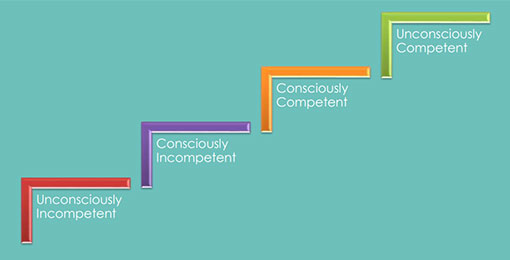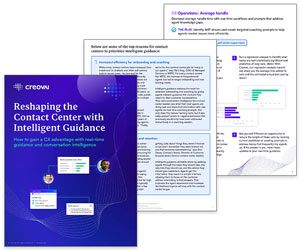There are many ways to build a contact centre culture that improves agent performance, and here are some of the most valuable.
Get the Basics Right
We hope that most of you are doing each of the following things to better support your advisors and, if not, these are key areas to address in the interest of improving performance.
So, without further ado, here is a set of questions, each filed under one of five subheadings, which you should be answering “yes” to if you really are getting the basics right.
Each of these questions has been put forward by Caroline Cooper, a trainer and consultant at Naturally Loyal.
Purpose
- Do you have a purpose that resonates with your team?
- Do team leaders know what’s important to individual members of their team?
- Do agents know the significance of their contribution to the success of your business?
- Do agents get feedback on the impact that they’ve made on a personal level?
Expectations
- Is “good” defined so that everybody knows what is expected of them?
- Are expectations consistent from one line manager to the next?
- Do agents know how their performance is being measured/assessed?
Tools for the Job
- Are your agents comfortable with the systems they use to handle customer queries?
- Have you asked your team “what’s not working?” and acted on the feedback?
- Do your metrics provide actionable insight?
- Are you confident that there is no friction between agents who work alongside one another?
Common Courtesies
- Do you actively plan to have conversations and run activities to show your team that you care about them?
- Do you start the day with a bright, cheery and genuine “good morning” to your team?
- Do you stick to the commitments and promises you make?
- Do agents end every day on a high (especially Fridays)?
First Impressions
- Do you share an insight of culture, values and philosophy during recruitment?
- Are you filling new recruits with a sense of purpose?
- Are you setting clear expectations to new members of the team?
- Do you give new agents the opportunity to make an impact very early on?
If you have answered “yes” to each of these questions, you are likely in a very good place. But let’s take a quick look at how you can improve agent performance even further.
For a checklist version of this set of questions, click here.
Tune Into Agent Behaviours
To improve agent behaviour, it’s important not only to coach the agents themselves but to train team leaders too.
While we can pass on useful advice, such as “don’t be afraid to have difficult conversations”, team leaders need to be perceptive and observe how agents are interacting with one another.
Caroline Cooper adds: “When you get home in the evening, it doesn’t take long to sense the mood of everybody else, and it should be the same when you get into the contact centre every morning. It shouldn’t take long to pick up on those vibes if and when things aren’t how they should be.”
When you get home in the evening, it doesn’t take long to sense the mood of everybody else, and it should be the same when you get into the contact centre every morning.
“But you also need to be approachable, because if someone isn’t outwardly showing that they’ve got some concerns, it’s important that you have that open-door policy and that people know that you will listen to what they say.”
To become more approachable it’s critical to keep smiling and to take the time to engage in small talk. This will help team leaders get to know their agents better, which is invaluable for identifying what’s important to them, what motivates them, and to recognize when things are not as they should be.
When a team leader notices that something’s not quite right with an agent, it’s important to not just sweep it under the carpet, but to have a personal conversation with them, because they might just be looking for someone to share their problems with.
By giving agents this time, you can guard against any drop in performance levels and, more importantly, maintain a happy and engaged team.
For more on coaching team leaders, read our article: How to Develop Team Leaders in the Contact Centre
Offer Guidance and Support
Giving people meaningful feedback, with specific references to what they did well and constructive guidance on where to improve is key to boosting performance. This is why techniques like making notes on scorecards can help to add value to the quality process, through extra personalization.
In fact, some contact centres even go as far as not showing advisors their quality scores, just passing on open feedback instead, as they believe this is more valuable and that many advisors simply look at the score instead of the guidance that comes with it.
Very often when people are not performing to their full capacity it is because they don’t feel confident enough to do what you’re asking of them.
Caroline Cooper agrees that open feedback is vital, saying: “Very often when people are not performing to their full capacity it is because they don’t feel confident enough to do what you’re asking of them.”
“So, give advisors the confidence that they need (perhaps through side-to-side coaching sessions) and let them demonstrate to you that they can do it – especially when you’re trying to introduce new call handling techniques. That will help to build their confidence.”
Also, when we’re talking about supporting advisors, we need to discuss having systems in place that make the advisor experience easy and, if something isn’t working, making sure that the team have a route to come and talk about it.
Finally, make sure that you demonstrate trust in your people, because if you suggest to somebody that you don’t have confidence in them, it will become a self-fulfilling prophecy.
For more on the topic of faith in your advisors, read our article: Contact Centre Motivation – How to Reward, Empower and Inspire Advisors
Create Unconscious Competence
Spending more time on coaching is the obvious way to improve an advisor’s performance, but to get maximum value from your training programme, you should be aware of the four levels that people go through when they are learning something new.
If you think you need to do some corrective coaching with somebody and they believe that they are already doing a fantastic job, they are unlikely to be receptive to your coaching. This is level one “unconsciously incompetent”, as seen in the chart below.

Caroline Cooper takes us through each of these stages in greater detail below:
- Unconsciously Incompetent – The advisor is either making a mistake and is blissfully unaware of it or is unaware of what was expected from them in the role anyway.
- Consciously Incompetent – The advisor realizes the mistake they are making and understands why they need to correct it.
- Consciously Competent – The advisor has amended the mistake they were making, but still has to concentrate really hard to ensure they don’t fall back into their old habits.
- Unconsciously Competent – The advisor has amended the mistake to the extent that they no longer need to stop and think about it.
So, when you find a repeat problem in an advisor’s performance, go through the calls with them and highlight the mistake to get to Level 2. This will ensure that the coaching will have a better effect when you look to take advisors to the next level of “consciously competent”.
Then, just ensure that you track the advisor’s performance so that you feel they have reached a state of unconscious competence and that performance has been permanently improved.
Consider Where Advisors Are on the Skill-Will Matrix
In terms of supporting advisor development, it can also be useful to assess where they are on the skill-will matrix.
The matrix is presented below, with “skill” on the vertical axis and “will” on the horizontal axis.

This can be a useful model when coaching someone to assess whether they are in the orange box – i.e. showing lots of enthusiasm, but not yet necessarily the skills – or maybe they’re in the blue – i.e. they’ve got the ability, but they lack the enthusiasm or willingness (maybe through lack of confidence or they don’t think it’s the right thing to do or that it’s their job).
Caroline adds: “Even if people are in the purple box and are at present your ‘star performers’, unless they feel recognized or are stretched, it’s all too easy for them to creep across to the left, and before you know, they end up in the blue box.”
So, to improve an advisor’s personal development, if they are in the blue box, find ways to engage them and, if they are in the orange box, give them coaching and direction. If an advisor is in the green box you’ll have to really focus on both of these areas.
However, as Caroline said, we cannot neglect those in the purple box, and there are plenty of other ways to improve an advisor’s development.
Focus on Development
Development shouldn’t necessarily be all about fixing faults but tapping into where agents have natural strengths and, if you can identify where their strengths lie, it can be really beneficial to nurture them.
Why? Because you are giving the agent the chance to shine, as they have the opportunity to “exercise” something that they love and are naturally good at.
Even if you have people that don’t want to take on more responsibilities, that doesn’t mean that it’s okay to let them stagnate.
As Caroline says: “Even if you have people that don’t want to take on more responsibilities, that doesn’t mean that it’s okay to let them stagnate. Agents need to continuously develop, otherwise they will get bored, and a bored employee is never going to ‘wow’ your customers.”
With this in mind, look for opportunities for development which go beyond the quality monitoring and coaching “norm”, whether that’s offering a job swap, going on site visits with agents or providing training to develop leaders at the advisor level.
One other key method of boosting development is to set agents challenges, again tapping into their key strengths, and nine times out of ten they will rise to the challenge if you have chosen the right opportunity for them.
For more on developing performance in the contact centre: How to Unlock the Potential of Your Call Centre Agents
Spice Things Up
They say that variety is “the spice of life” so, as well as finding innovative development opportunities, make an effort to change your team’s perspective on things.

Caroline Cooper
For example, Caroline adds: “In the contact centre, there is a great focus on listening to things, but there is also great value in tapping into their other senses, in terms of observation and how things feel.”
“Simple things like moving people to sit in different seats around the contact centre, amongst new people, will mean that they will pick up different perspectives.”
Also, to “spice things up” further, there’s great value in appealing to the inner-child within your agents through gamification, as we all enjoy a little bit of healthy competition.
So, whether you’d like to employ some motivational games or go the “whole hog” and install gamification technology, make sure there is an element of fun within your contact centre operation.
For more on this topic, read our article: Using Gamification to Increase Contact Centre Engagement
Give the Team Pride in What They Do
To do this, we firstly must show agents respect for what they do. This goes back to showing common courtesies, integrity and that you care for each member of the team.
Then, we must show agents that we trust them. This involves simple things such as recognizing and playing to their strengths, not enforcing strict script adherence, and employing the same rules for everyone, i.e. ensuring there is no element of bias.
We also must think about showing our recognition for the good work that agents do. Sometimes, that can just be a simple “thank you” at the end of a busy shift or just asking for their opinion, showing that you value their insights.
We also must think about showing our recognition for the good work that agents do. Sometimes, that can just be a simple “thank you” at the end of a busy shift or just asking for their opinion, showing that you value their insights.
Finally, it’s good to celebrate, as well as recognize, agent/team successes to showcase the significance of the team’s achievements, making sure they have a say in how you do so. This way, agents are more likely to buy in to your celebrations.
By sticking to these four elements of respect, trust, recognition and celebration – as recommended by Caroline – you can really boost your team’s pride in what they do, increasing job satisfaction and their willingness to improve.
In Summary
To improve advisor performance, you must first ensure that you are doing the basics right, which you can do by answering the 19 questions presented at the start of this article.
Then, look to do more to tune in to advisor behaviours/moods. Get to know your people and build up a sense of when something is wrong and nip the issue in the bud quickly. This will help to safeguard you from any dips in performance.
Alongside this, make sure team leaders are coached to be comfortable in having difficult conversations with agents and offering guidance to them, while it is also important that agents feel supported in terms of feedback, encouragement and systems.
We should also focus on developing agent skills so that they are unconsciously competent in key areas of improvement, which you can identify through quality monitoring.
To develop agent performance in other areas, consider where individual advisors are on the “skill-will” matrix, set challenges and don’t be afraid to spice things up!
Finally, make sure your team are proud of their roles within your organization. Demonstrate your trust and respect for every individual agent through recognition, while remembering to celebrate key successes.
For more on helping to improve performance within the contact centre, read our articles:
- 50 Quick Ideas to Improve Contact Centre Performance
- 12 Great Tips to Improve Call Centre Performance
- 25 Performance Review Phrases for Customer Service
Author: Robyn Coppell
Published On: 3rd Jul 2019 - Last modified: 18th Aug 2025
Read more about - Call Centre Management, Agent Performance, Caroline Cooper, Culture, Customer Service, Editor's Picks, Employee Engagement, Management Strategies, Performance Management, Team Building, Training and Coaching




















